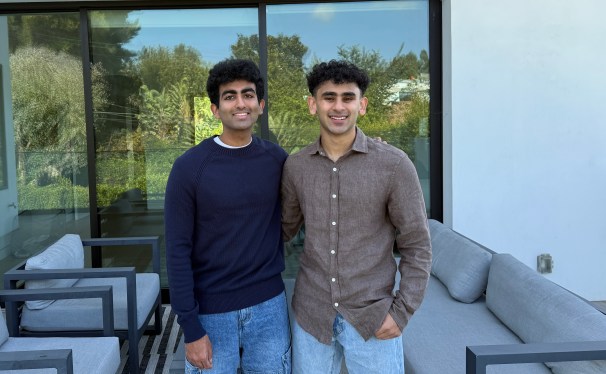Turbo AI, a startup launched in early 2024, has reached five million users and generates eight-figure annual recurring revenue. The company, founded by two twenty-year-old college dropouts named Rudy Arora and Sarthak Dhawan, is now adding twenty thousand new users every day. Most of this impressive growth occurred in the past six months, during which the AI-powered note-taking and study tool grew from one million to five million users while remaining profitable.
The idea for Turbo originated from a common classroom problem. The founders struggled with the challenge of taking notes while simultaneously paying attention to a lecture. The CEO, Sarthak Dhawan, explained that he could not listen to the teacher and write at the same time. This frustration led him to wonder if artificial intelligence could provide a solution.
The pair initially built the tool, then called Turbolearn, as a side project. It allowed them to record lectures and automatically generate notes, flashcards, and quizzes. They began by sharing it with friends, and it quickly spread to classmates at Duke and Northwestern, the universities they were attending before dropping out this year. Within months, the app had reached students at other institutions, including Harvard and MIT.
The product takes the standard note-taking formula of recording, transcribing, and summarizing and makes it interactive. It generates study notes, quizzes, and flashcards, and includes a built-in chat assistant that can explain key terms or concepts. However, the founders discovered that recordings in large lecture halls often picked up too much background noise. In response, they built features that allow students to upload PDFs, lecture slides, YouTube videos, or readings instead. Uploading existing materials is now a more common use case than recording live lectures.
The founders note that students are highly engaged with the product, often spending hours going through numerous quiz questions. This indicates the tool is effectively saving time and helping with information retention. The app’s user base has also expanded beyond students, prompting a name change from Turbolearn to Turbo AI. Professionals, including consultants, lawyers, doctors, and even analysts at firms like Goldman Sachs and McKinsey, have adopted the tool. Some professionals use it to upload reports and generate summaries or convert them into podcasts for their commute.
The founders have been friends since middle school and have collaborated on multiple projects over the years. Dhawan previously built an advice app called UMax that reached the number one spot on the App Store, amassing twenty million users and generating six million dollars in annual revenue. Arora specializes in using social media strategies to drive explosive growth and attract millions of users.
Despite the scale of their previous projects, they only felt the need to drop out of college for Turbo AI because they saw an opportunity to build a lasting business. Unlike many fast-growing AI companies, they are cautious about raising too much money too early. They took in only seven hundred and fifty thousand dollars last year, before they had significant traction. They are now cash-flow positive and have been profitable for their entire time as a company. Their fifteen-person team is based in Los Angeles and focuses on staying close to student and creator communities at local colleges.
Students currently pay about twenty dollars a month for the product. The founders say they are exploring other pricing options to accommodate the price sensitivity of students, even as the app scales beyond this core group. They are running many tests to see what works best.
Turbo AI positions itself between fully manual tools like Google Docs and fully automated note-takers like Otter or Fireflies. Users can choose to let the AI take notes entirely or write alongside it. This approach has helped Turbo stand out in a competitive space that includes other startups targeting students. The founders believe they have successfully become the first tool that comes to mind when students think of an AI note-taker or study assistant.

